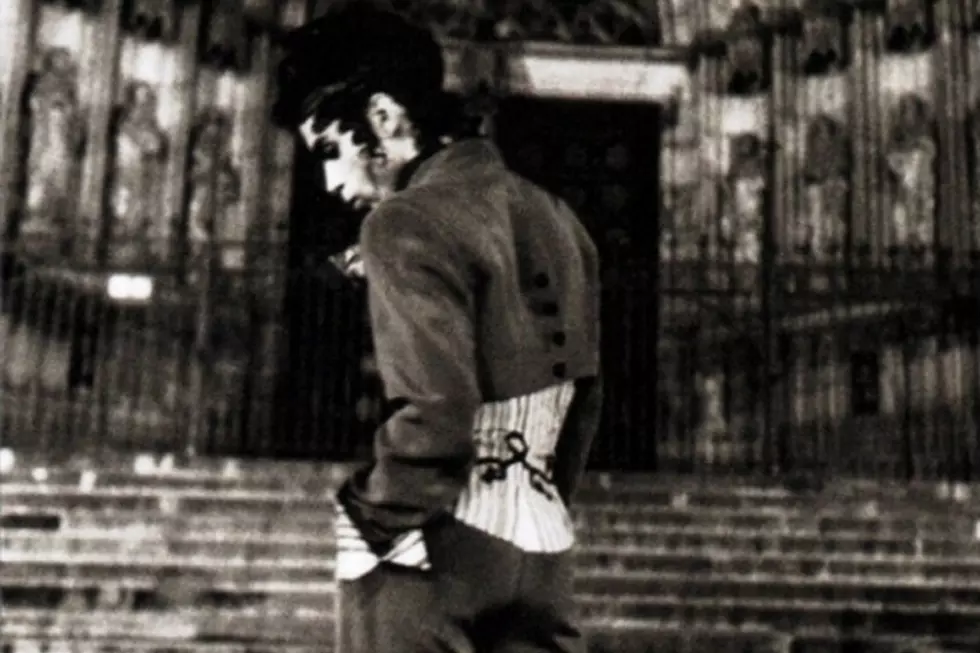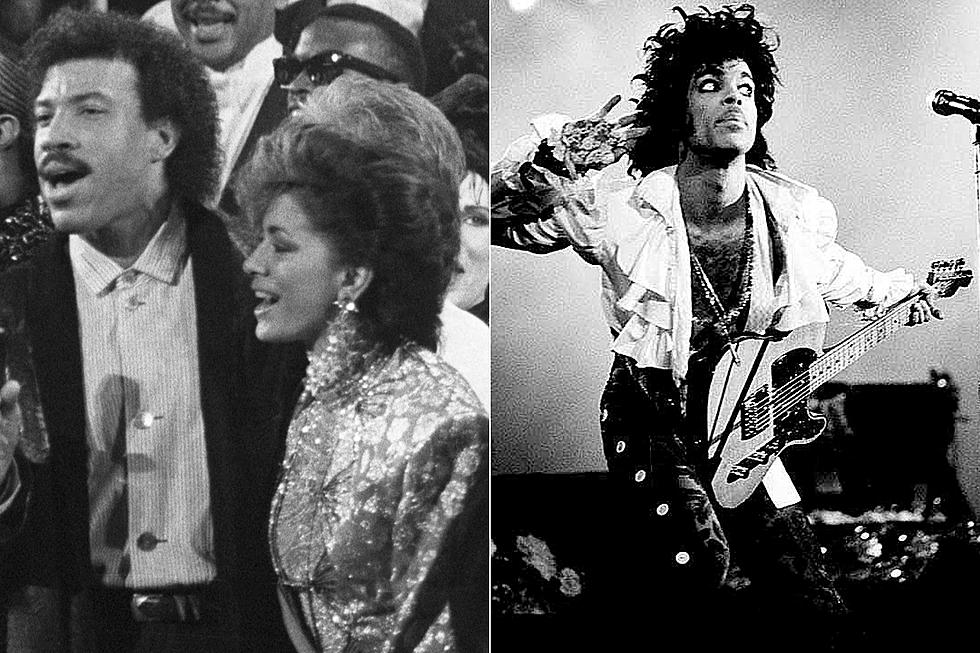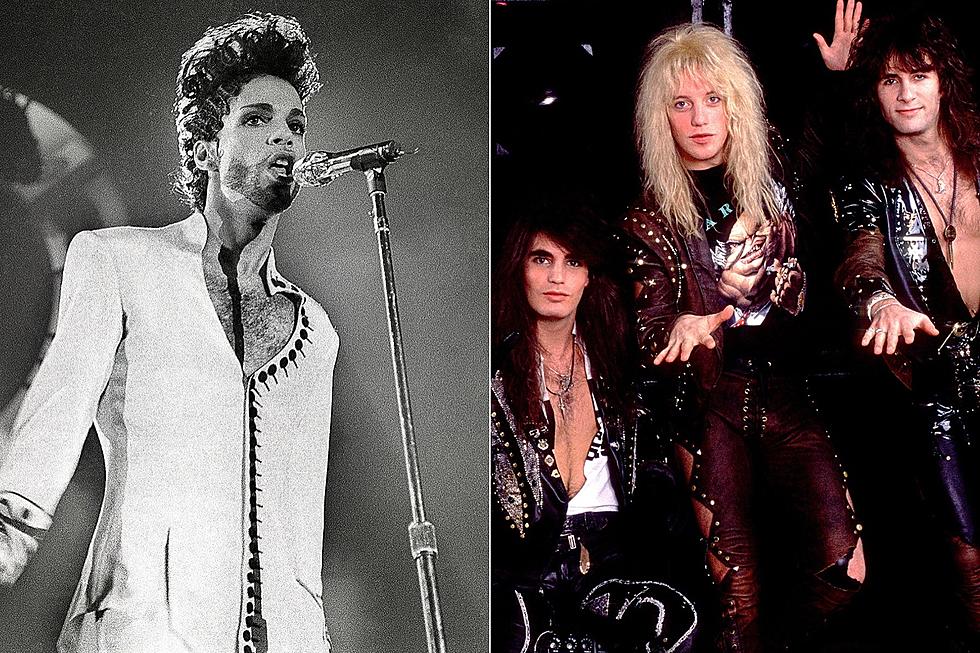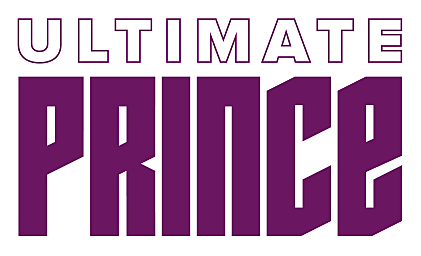
Prince Gave Warner Bros. More Than They Asked For With ‘Come’
"Come" always felt like a terminating line between two worlds for Prince, and not just because it was the first song on one of the last albums of all-new material he released under his original Warner Bros. contract. This was the point when his insurrection – begun the year before when Prince famously changed his name – became real.
In some ways, the symbol thing was the easy part. Now, Prince found himself standing astride of both the promise of what lay ahead as an independent artist and the duty of honoring his label deal – and he didn't really know what to do next. He dabbled in a series of forms outside of music, and even considered retirement. Ultimately, Prince settled on the idea of releasing two albums – one as Prince (Come), and the other (The Gold Experience) as an unpronounceable glyph. The first would represent his past, the second a far horizon – even though many of the tracks came from the same sessions. He'd issue them both simultaneously, in commemoration of his dramatic transition.
Thankfully, Prince never got past the idea stage with these bold plans, which would have taken his essential duality to a confusing new zenith. Warner Bros. refused to release two full-length studio projects at the same time, instead scheduling Come for Aug. 16, 1994 and the follow up for about a year later, so as not to flood the market with new Prince music.
That only served to infuriate him more. Asked by Q magazine's Adrian Deevoy in 1994 if he ever had difficulty translating the sounds from his head into music, Prince said: "That's never been a problem. The problem is getting it all out before another idea comes along."
He ended up constructing a dizzying number of iterations while trying to settle on song selections for Come – including one, curiously, that did not contain the title track. Prince's label flatly rejected it. "The company was so upset with that album," Warner Bros. vice president Marylou Badeaux reportedly said. "People said it was a piece of shit." They specifically asked that "Come" be put back in, and Prince went to work – eventually including what amounted to a solo version of a song he'd earlier worked out with the New Power Generation.
Still, he rarely mentioned Come, and refused to tour behind it. (The gold-selling project went Top 20 in the U.S. anyway, and it topped the charts in the U.K.) Prince's real focus, from the first, was on The Gold Experience – on, he said, the future. Years later, Prince pointedly dubbed Come a "contractual obligation" on his NPG Music Club site. Even so, the journey this album's title song took tells us a lot about where Prince was in this critical moment.
In an ongoing battle with Warner Bros. for control of his career, taking the symbolic name of his most recent album had been the shot heard 'round the world. Back then, Prince estimated that he was creating three or four albums worth of material a year, but – as with Come and The Gold Experience – being limited to releasing just one. In a 1994 piece for Vibe, Alan Light described Prince as "fixated on one thing: He has too much music sitting around, and he wants people to hear it."
Prince considered side-stepping Warner Bros. completely. He originally created "Come" for use in a stage show titled Glam Slam Ulysses, a musical loosely based on Homer's Odyssey which eventually premiered in August 1993. He also used an earlier version of the track in a movie called The Beautiful Experience. Both ideas represented another way for Prince to get his music directly to fans.
Meanwhile, he was still writing and recording songs. Lots of them. At least five, including "Come," had emerged from a single Jan. 2, 1993 session with members of the New Power Generation. Prince was helpless before his muse.
"The Come album really evolved from boredom," drummer Michael Bland told Guitar World in 1994. "Bassist Sonny Thompson and I were the only two cats in the band who hung around Minneapolis during Christmas vacation. And Prince got bored, as he usually does – because when he's not creating, he's not alive, you know. So, he went down to the soundstage where we were set up for rehearsal before vacation began, and he just played by himself all day. They say he stayed in there for like eight, 10 hours, just messing around with ideas. And then the second day he got up the courage to call us up and ask, 'You guys bored, too?' So, we came out and worked on a good half-dozen tunes."
Tommy Barbarella and Morris Hayes dropped by later to embellish things. All of it, however, remained unreleased. Prince instead gave a cassette copy of the songs to playwright David Henry Hwang of M. Butterfly fame, who then began outlining a proposed musical, also to be titled Come. That idea eventually fizzled out, too.
On the cusp of something so new, the possibilities must have felt endless. But Prince seemed to be doing everything – and nothing – all at once. Maybe, as he had hinted in a '90s-era talk with comedian Chris Rock, this so-called indecision had more to do with a Gemini's innate ability to see more than one side. Or maybe Prince really needed the boundary-keeping focus a label partnership brings.
He continued working on the tracks into the winter of 1993, later emerging with a much longer version of "Come" that only included outside contributions from the "New Power Generation Hornz." Already a salacious, brass-drenched romp, it now took on experimental and darkly epic proportions – very much in the style of his earlier sex-obsessed escapades. The song's stripped-down, almost claustrophobic sound had a certain symmetry too, since "Come" was part of a project that waved goodbye to that pre-New Power Generation era.
Prince was consumed with bigger ideas now. Asked by Adrian Deevoy if "Come" was about an orgasm, he deftly shifted from the carnal to the philosophical. "Is it? That's your interpretation? Come where? Come to whom? Come for what?" Prince said in their 1994 talk. "That's just the way you see it. It's in your mind."
Still mulling over the idea of a triple album titled The Dawn, which also never happened, Prince contributed two songs for an interactive CD-ROM game. By then, he'd already played sections of Come out on the road, and even previewed finished songs for radio and the print media. "Prince skips back and forth between tracks," Light wrote for Vibe. "It all sounds strong – first rate, even – but he seems impatient with it, like it's old news."
For an increasingly frustrated Prince, it was. But that's when the pathway to revenge finally became clear. He re-submitted Come to Warner Bros. in March 1994, only with his monstrous 11-minute reworking of the title track. He also put "Come" at the top of the album's running order, in what seems like another obvious attempt at antagonizing them.
The label execs also asked that Prince include his recently released stand-alone smash single "The Most Beautiful Girl in the World," but Prince defiantly put it on his next album instead. In fact, The Gold Experience was submitted the very same day. He'd already moved on.
Prince's Bandmates: Where Are They Now?
More From Ultimate Prince










